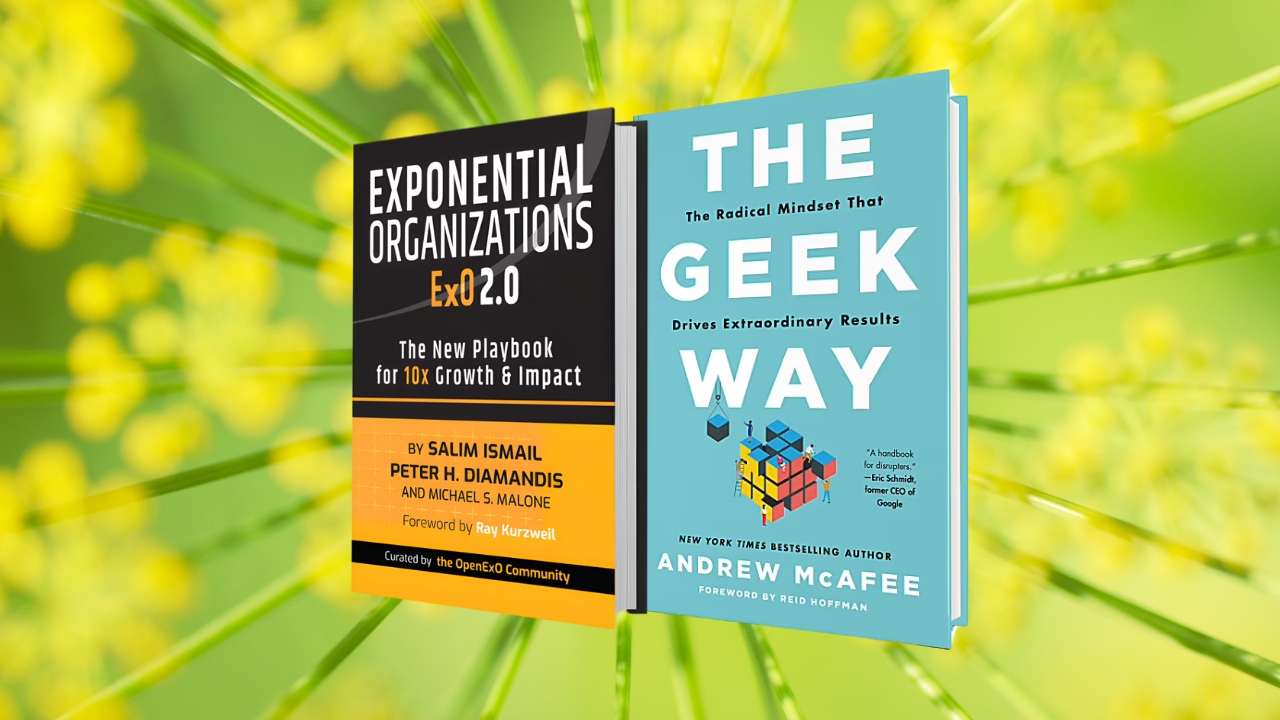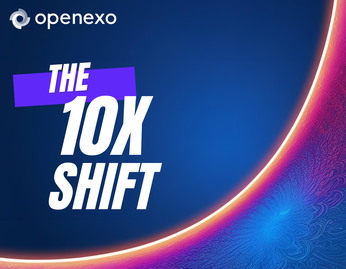
The Geek Way Meets Exponential Organizations: Why Culture Eats Strategy for Exponential Growth
In the world of modern business, everyone wants to build the next Google, Amazon, or OpenAI—a company that scales rapidly and dominates its industry. But few truly understand the mindset that enables this transformation.
On one hand, the Exponential Organizations (ExO) model, developed by Salim Ismail, provides a structured framework for companies to leverage technology, networks, and data to scale exponentially. On the other hand, Andrew McAfee’s “Geek Way” explains how today’s most successful companies cultivate a culture of experimentation, speed, and radical transparency—often without consciously following a model.
Here’s the catch: Without a cultural shift, the ExO model remains just another management framework. Culture is the fuel that makes ExO principles work. If a company lacks the Geek Way mindset, even the most sophisticated ExO strategies will fail.
Let’s explore how these two powerful concepts intersect—and why culture must come first.
The Geek Way: How Innovators Build Without a Playbook
In The Geek Way, Andrew McAfee argues that today’s most innovative and scalable companies share a unique cultural DNA. These companies are data-driven, anti-bureaucratic, and obsessed with experimentation. They follow four key principles:
- Science: Decisions are based on data, A/B testing, and real-world feedback—not intuition or hierarchy.
- Ownership: Employees are empowered to make decisions without waiting for approval.
- Speed: Rapid iteration replaces slow planning. Failure is not punished, but used as a learning tool.
- Openness: Transparent decision-making and a willingness to challenge authority drive innovation.
Many of today’s leading tech giants naturally follow this Geek Way philosophy, whether they call it that or not:
- Google: Decisions are based on A/B testing, not executive opinions.
- Amazon: Teams operate autonomously, making changes without bureaucracy.
- Netflix: The company embraces radical transparency and extreme ownership.
McAfee’s insight is that geeks don’t need a management framework to scale—they just follow their instincts. They thrive in an environment where debate, iteration, and experimentation rule.
The ExO Model: A Blueprint for Scale
While The Geek Way describes how companies succeed culturally, the ExO Model offers a structured framework to scale companies exponentially. Developed by Salim Ismail, the Exponential Organizations (ExO) model identifies 10 key attributes that allow companies to grow 10x faster than their peers. These include:
- MTP (Massive Transformative Purpose): A big vision that attracts talent and resources.
- Algorithms & Dashboards: Data-driven decision-making at scale.
- Community & Crowd: Leveraging external networks for growth.
- Autonomy & Experimentation: Small, empowered teams drive innovation.
Companies like Tesla, Airbnb, and SpaceX exemplify the ExO model, using these attributes to scale far beyond traditional companies.
But here’s the problem: Many companies try to implement ExO principles without embracing the necessary cultural shift. They want the results of exponential growth, but they’re still trapped in traditional hierarchical and bureaucratic structures.
Where The Geek Way and ExO Overlap and Diverge
Let’s break down how the two approaches compare:

The key difference?
- The Geek Way is a cultural philosophy that enables speed, innovation, and autonomy.
- The ExO Model provides a framework for using technology, data, and networks to scale.
One is instinctive, the other structured. But together, they create an unstoppable formula for success.
Why ExO Fails Without a Cultural Shift
Here’s the biggest challenge facing companies that try to become Exponential Organizations: they want the framework without the mindset.
- If leaders still rely on top-down decision-making, ExO strategies won’t work.
- If teams don’t have autonomy and ownership, innovation will stagnate.
- If experimentation is discouraged, rapid iteration won’t happen.
Many large corporations struggle to implement ExO not because of strategy, but because of resistance to cultural change. Without The Geek Way’s culture of speed, transparency, and ownership, ExO efforts often fail to take off.
✅ Final takeaway: The Geek Way is the engine. ExO is the map. Companies need both to scale successfully.
Culture Before Framework
Most organizations want to be Exponential, but they lack the Geek mindset that makes it possible. The best companies don’t just adopt ExO strategies—they live by the principles of The Geek Way.
If leaders want true transformation, they must prioritize culture first—or risk having their ExO ambitions crushed by old-world bureaucracy.
💡 What do you think? Have you seen ExO principles succeed or fail in your organization? What role did culture play in the outcome? Let’s discuss in the comments.
ExO Insight Newsletter
Join the newsletter to receive the latest updates in your inbox.









